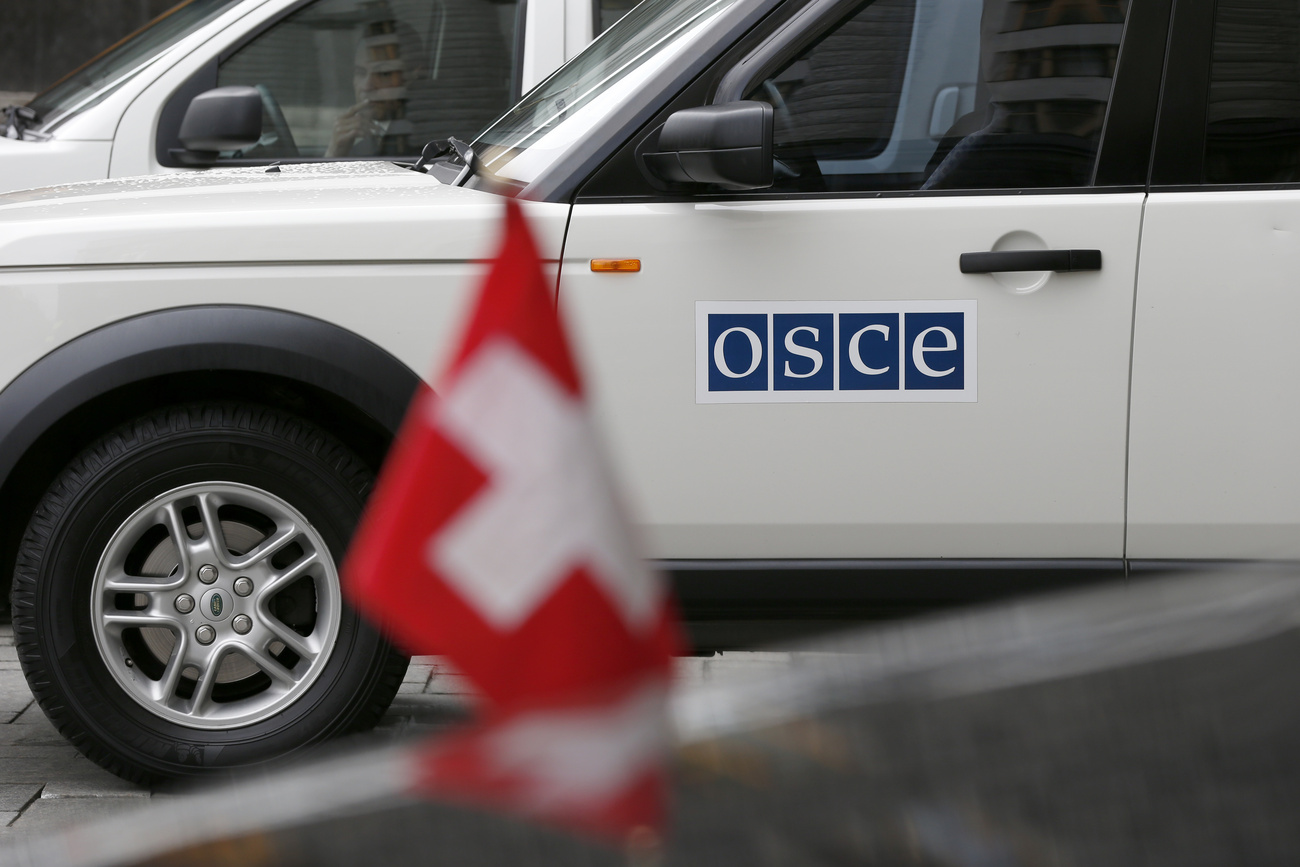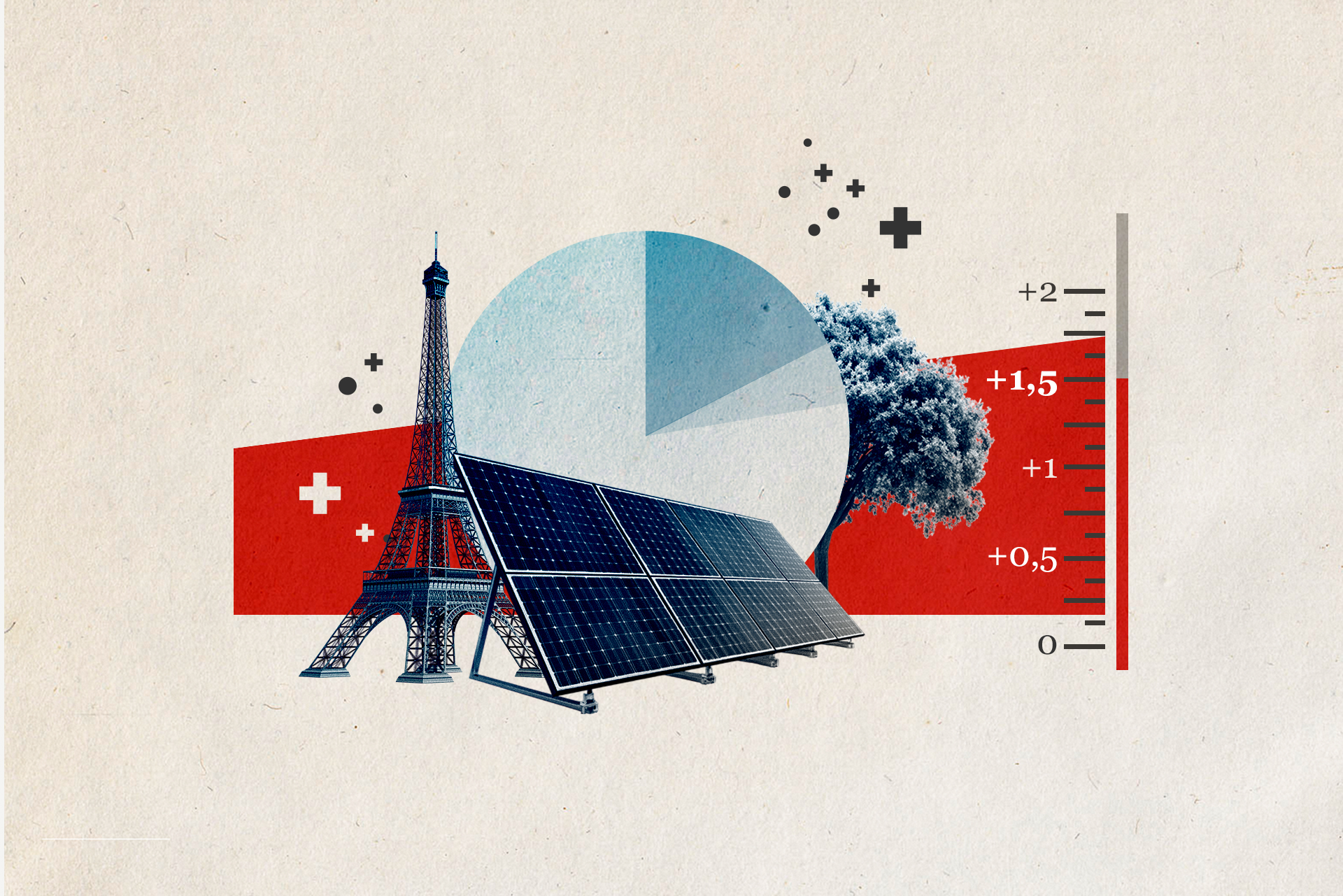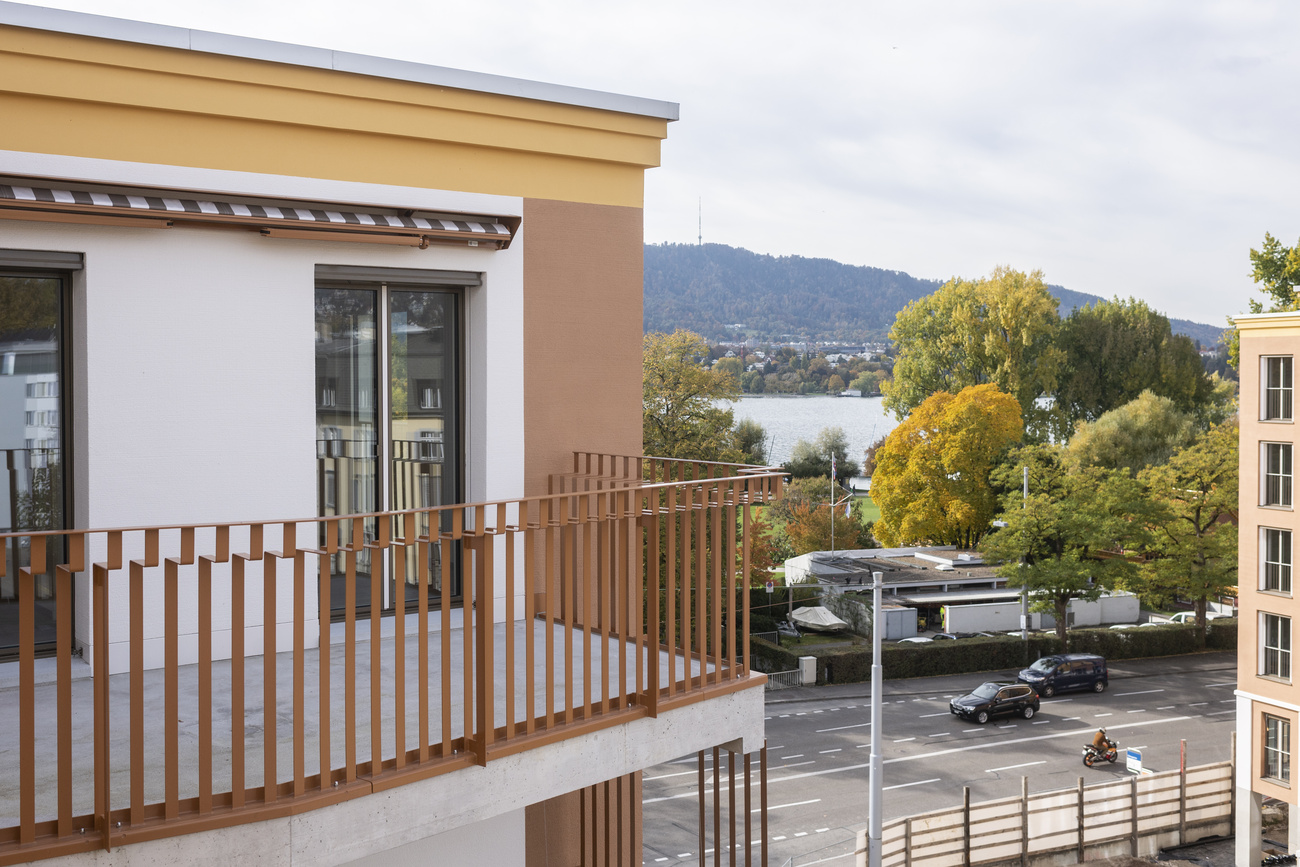
COP28: Switzerland signs climate agreements with Chile and Tunisia

Swiss Environment Minister Albert Rösti signed emissions reduction agreements with Chile and Tunisia in Dubai on Saturday. The resulting CO2 reductions in the two countries will count as progress towards Switzerland’s climate goals.
Both sides would benefit from the agreements, the Federal Office for the Environment (FOEN) wrote on SundayExternal link. The emissions saved in Chile and Tunisia as a result of the agreements can be counted towards Switzerland’s reduction in fossil fuel use.
It makes no difference to the climate where CO2 is reduced, Rösti told Swiss public radio and television SRF. Emissions could be reduced more quickly with such projects abroad than with additional difficult and expensive measures in Switzerland.
+ Read more: offset scandals put Switzerland in spotlight at COP28
Interim balance drawn
At the COP28 UN Climate Change Conference in Dubai, an interim assessment was made of progress made in implementing the Paris Agreement. According to information provided by the FOEN, Switzerland has campaigned for all countries to contribute fairly to the financing of climate change fallout in poor countries.
According to SRF, Rösti travelled to Dubai with two objectives: he wanted to show what Switzerland has already achieved and wanted to make it clear that countries with high emissions are expected to co-finance change. The Environment Minister went on to say that he would not be imposing any bans.
In the plenary session of the conference, Rösti said that a way had to be found to phase out subsidies for fossil fuels. In an interview with SRF, the minister justified the government’s seemingly contradictory recent decision to continue subsidising diesel and petrol for farmers and ski lift operators. He said that additional taxation would place a greater burden on those affected, meaning that they would no longer have the money to build – for example – solar power plants.
This news story has been written and carefully fact-checked by an external editorial team. At SWI swissinfo.ch we select the most relevant news for an international audience and use automatic translation tools such as DeepL to translate it into English. Providing you with automatically translated news gives us the time to write more in-depth articles. You can find them here.
If you want to know more about how we work, have a look here, and if you have feedback on this news story please write to english@swissinfo.ch.

In compliance with the JTI standards
More: SWI swissinfo.ch certified by the Journalism Trust Initiative



























You can find an overview of ongoing debates with our journalists here . Please join us!
If you want to start a conversation about a topic raised in this article or want to report factual errors, email us at english@swissinfo.ch.